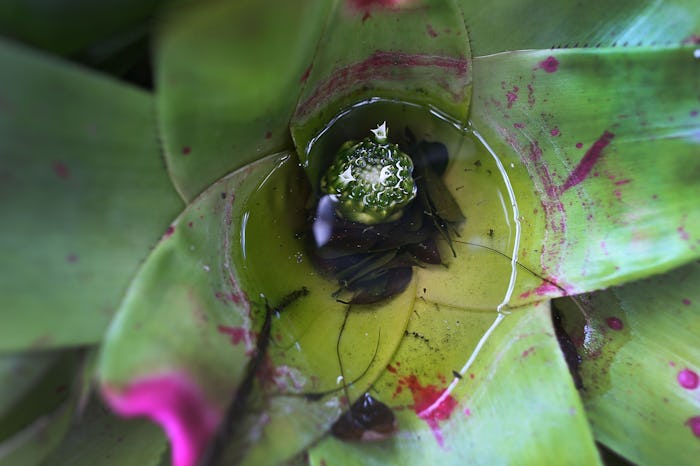Life

Where Will Zika Be Worst? Experts Say Damage To The Gulf Coast Could Be In The Billions
The Zika virus has become endemic in parts of Central and South America, to the detriment of its population of new mothers whose future children are at risk for brain deformities if they are infected in utero. Though the virus has spread to Puerto Rico, and there are more than 600 reported cases in the continental United States, there have yet to be any cases of local transmission by local mosquitos. But experts are saying that that won't last as the summer temperatures rise and mosquito populations boom. So where will Zika be the worst? The southern Gulf Coast states are predicted to have the biggest and most devastating outbreaks, according to new information from experts.
Dr. Peter Hotez, the dean of the National School of Tropical Medicine at Baylor College of Medicine, said as much when he was interviewed by Politico. He said that the mosquitos that spread Zika — Aedes aegypti — could already be carrying the virus in the United States. Given the government's lack of resources to study and stem the virus, he claims that local health organizations haven't been able to track it, let alone prepare for it. Not only would an outbreak be emotionally trying for new mothers, but it would be financially disastrous for families and the federal government.
Hotez went so far as to say that the impact of an outbreak would be financially comparable to the cost of Hurricane Katrina, which caused more than $100 billion in damage, according to CNN. According to Politico, he said, "If we start seeing hundreds of microcephaly cases appear, each one is a terrible human tragedy — [but] that's a family that's destroyed economically as well, because you're going to have take care of that baby."
During a webinar for the Kaiser Family Foundation, Dr. Thomas Frieden, the Director of the Centers for Disease Control, said the lifetime cost of care for a child with microcephaly would be between $1 million and $10 million. Though some cost would be the burden of the family, most of it would have to be covered by the health care system. Already one baby with Zika-induced brain damage has been born in the United States, according to CBS News. If there is an outbreak, the costs of care could quickly go into the billions of dollars.
While there has been a lot of discussion over the safety of Brazil for the summer Olympics, experts have said that it may be safer there than the southern United States. Hotez added during his interview that:
Rio de Janeiro may be one of the safest places in the Western Hemisphere for Zika virus this summer. The risk, sadly enough, may be far higher for pregnant women on the Gulf Coast. There are some counties in Texas, Louisiana and elsewhere — the entire county's mosquito control district is a guy with a backpack. Or as we say, Chuck in the truck, and Chuck in the truck is not going to be able to control aegypti.
Hotez, among other health experts, briefed the U.S. Senate during a special closed session on June 8. They presented the findings of their study of the Zika virus, focusing on the risk to the Gulf Coast region.
Unfortunately, funding to help study and fight Zika has been hamstrung thus far by bipartisan politics. Though some Republican politicians have been supportive (including Marco Rubio, reported the Miami Herald), others have fought measures to dedicate funds to the cause. Hotez maintains that the country is running out of time and no doubt said so to the Senate. In his Politico interview he said, "Right now, I'm not seeing the political will to take this on. My nightmare scenario is no one does anything until it's seven or eight months from now … when we start seeing microcephaly cases show up on the Gulf Coast."